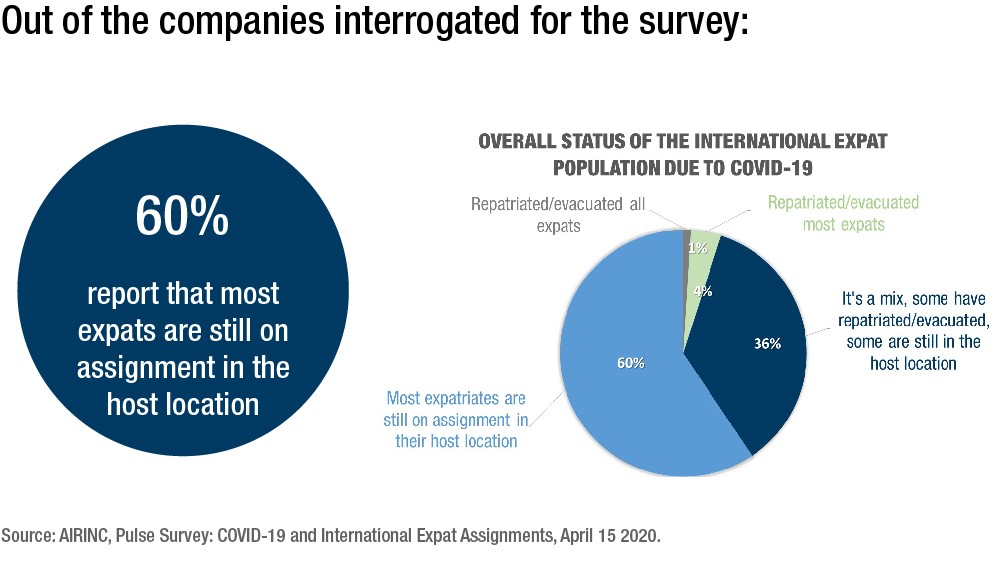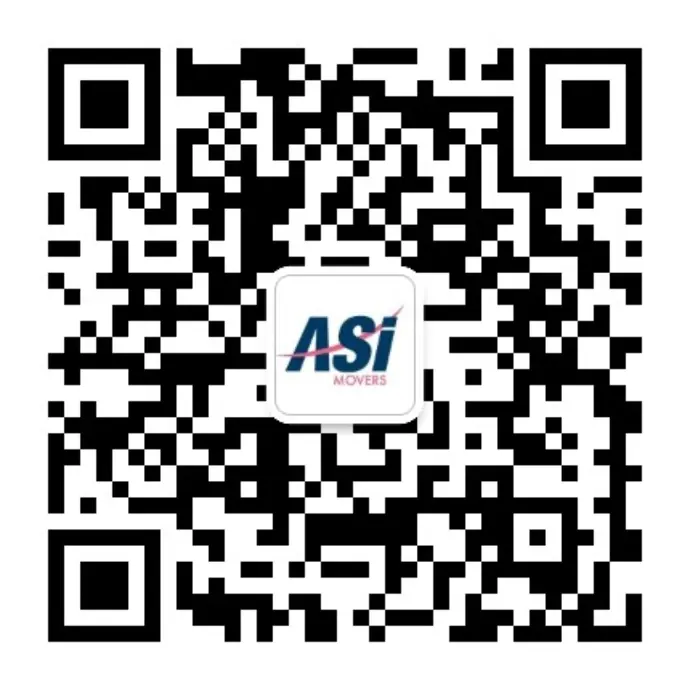Covid-19 is having and will have a huge impact in terms of employment.
Many SMEs’ and even bigger businesses’ activity has suffered from the pandemic and the lockdowns it induced. The OECD predicted that the world will thus register its slowest growth rate since 2019, inducing job losses as well as difficulties finding a job.
The examples of the US and China are quite striking in that sense, as 6 million people have filed as jobless in the former and 205 million workers have lost their jobs in the latter, according to the South China Morning Post.
Since the virus is still present worldwide, it is quite difficult to anticipate with exactitude the impact it will have on those eager to or already working abroad. However, some elements indicate a general trend for the so-called nomads.
Today we have gathered a relevant summary of what is happening and will happen in a post-Covid-19 world for those who have decided to leave their home country.
The Situation During The Crisis

AIRINC earlier published a report on expat assignments (Pulse Survey: COVID-19 and International Expat Assignments) which provides an interesting analysis on the current impact of the pandemic on the latter.

More specifically, we can see that most expats stayed in their host country and remained on their assignment.
One of the testimonies quoted in the survey stresses that “the greatest challenge has been the relocation and accelerated repatriation of short-term assignees who might otherwise have gotten “stuck” without the ability to travel”.
This statement is not only true of the so-called expatriates but also applies more generally to those working abroad. Since the above survey only tackles expats, it may overlook the larger population of people living abroad, while many have left their host location.
In addition, the challenges do not only apply to those eager to leave their host country but extend to all those who are unable to leave a place they were only planning on staying at for a short period. In a nutshell, global mobility has been put on hold on an international level.
As we touched upon in our previous articles, and this is particularly true of foreigners normally living in China, it created a lot of challenges. Many were unable to come back to their host country, where their job, sometimes family, belongings, and overall life remain. Others come home unexpectedly and will not go back to their host country, which means they do not have a place of their own to live in, their children will have to leave the local school they were enrolled in, etc.
Working Abroad In A Post-Covid World

Both multinational and local companies have taken measures regarding the impact of Covid-19 on their business and their management of foreign assignees, namely pulling expat employees out of high-risk areas delaying the start of expat assignments, and suspending new hires.
The traditional dilemma between employing expatriates/foreigners and resorting to the local workforce will be highly reflected in a world post-COVID-19. This is especially true given the global recession the IMF is currently anticipating.

Except when one is looking to employ very specialized profiles (science, innovation, AI, most of the time, even though the sectors vary depending on the location), hiring a foreigner comes with sometimes deterrent drawbacks.
Salary expectations are generally higher compared to employing a local worker. For expats usually benefitting from the full package traditionally coming with their status, the cost rises even higher with companies often endorsing the housing and international school expenses.
As such, the International Labor Organization (ILO) expects the chances for expats to get employed to drop. There is indeed a risk that companies will rely more and more on informal employees which means fewer chances of getting hired abroad.
However, one should not get too pessimistic regarding the situation.
The company Career Trotter (which specializes in international recruitments) for instance, stresses that “despite the Covid-19 virus, numerous companies are still looking to hire multilingual talents”. In addition, they note that many of the companies they work with are “going remote, so [one doesn’t] have to leave the comfort of [one’s] home for interviews, training, and the job itself”.
If one thing, the virus indeed pushed many companies to go online and administrate their business remotely. The now widespread use of Zoom is the perfect embodiment of such a trend.
On one hand, it means that the way one works could be influenced long-term by the habits developed during the pandemic i.e. working remotely. Nomads might thus see their work practices change toward more online tasking.
On the other hand, it means that, even when the world is still in partial lockdown, it shouldn’t deter those eager to work abroad from searching for adequate opportunities. While waiting for the situation to go back to normal i.e. free international mobility to resume as well as the economic impact of the pandemic to unwind. It is indeed still possible to apply, get a formation, and start working remotely. As we touched upon before, an expat status is maybe not the easiest one to get nowadays, yet one can expect more informal positions to open.

The recent pandemic has greatly challenged global mobility, some of those living abroad have even found themselves unable to come back to their country of residence. Many have contacted us worried about retrieving the items that stayed behind.
We know how precious some of them can be, and have thus designed tailor-made solutions for those finding themselves in such a situation.
Relocating Soon?


